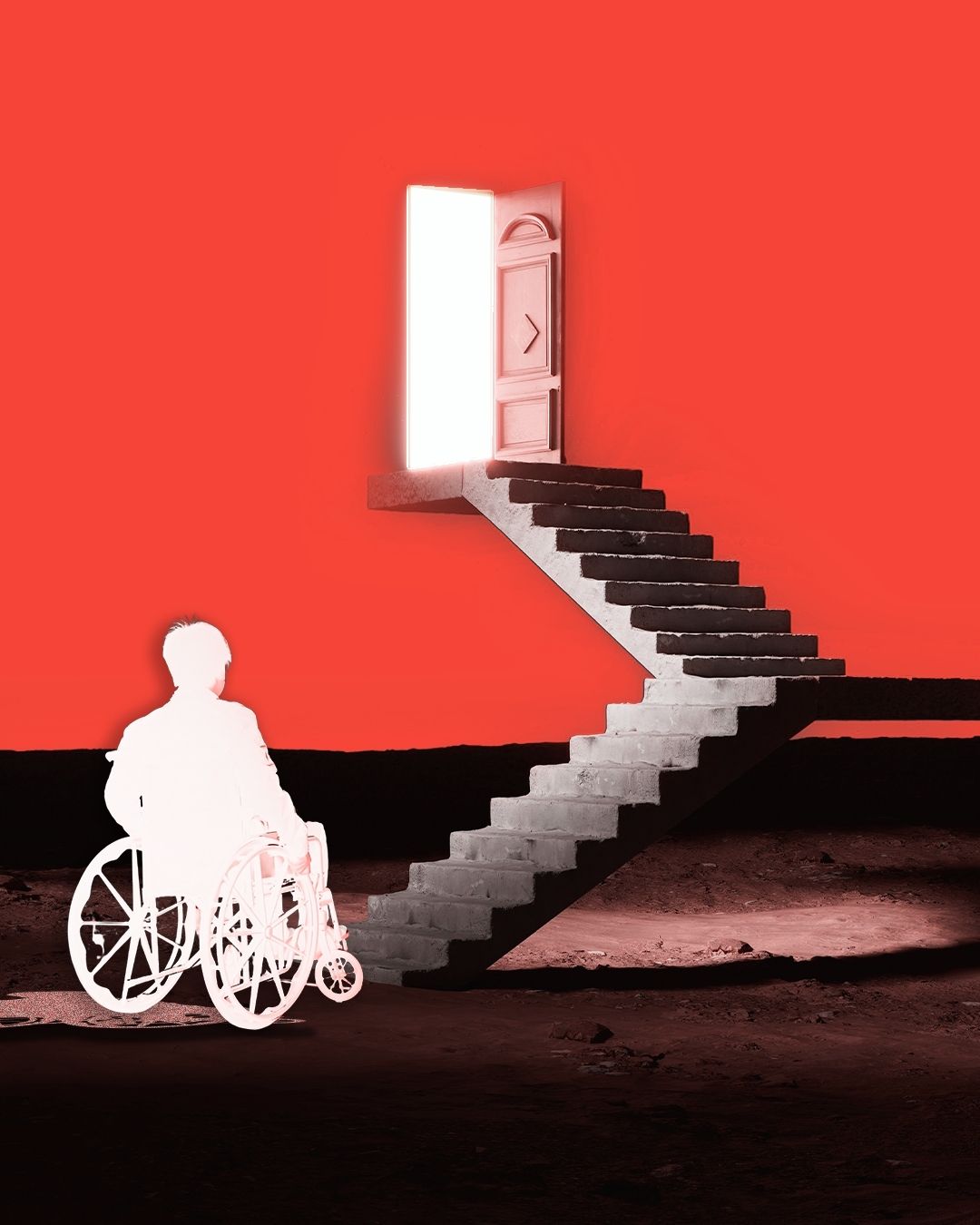The following thoughts have been swirling in my mind as I’ve been reading Craig Calhoun’s Civil Society and the Public Sphere. This piece of writing is in no way intended to be an academic criticism or counter-argument against this particular thinker's work, nor indeed is this a work of academic quality. Rather, this is just the thought process of a blind person who has been systematically excluded from the above-mentioned public sphere and, in its broader sense, civil society. I am writing this not because I have plenty of time to spend, but because before I move to my next reading, I must write this down. If not me, who else will do it? That is why I have to write this, because we haven't had anyone else to press upon our problems and convert them into a philosophy.
The ideas presented in this text are seductive. They paint a powerful picture of the “public sphere” as the very crucible of democracy, a space where private individuals transcend their own interests to become a citizenry. It’s a vision born in the revolutionary coffee houses and salons of Europe, where rational-critical debate could forge the will of the people and hold the mighty to account. It is the beautiful, foundational myth of modern democracy: a society that governs itself through conversation.
The texts are, of course, honest enough to admit the fractures in this myth. They detail, rightly, the historical exclusion of women from this public spear, the silencing of the working class whose concerns were deemed too vulgar for bourgeois debate. I read this, and I understand it. But the more I read about these historical exclusions, the more I feel a profound sense of distance, because the exclusion faced by my community – the community of disabled people – has always operated on a different, more fundamental level.
The injustices faced by other groups were about denying their right to participate, but rarely about denying their intrinsic capacity to do so. The injustice was a locked gate, but the person rattling it was still seen as a whole human agent. For us, the exclusion has always been rooted in a deeper, more insidious premise: the presumption of our incapacity. The public sphere was not just a space we were barred from; it was a space we were deemed unfit for in mind, body, and spirit. It was a rejection not just of our rights, but of our very being.
This rejection was built into the world in two devastating ways. First, in the tyranny of the “rational body”. The architecture of public life – the stairs leading to the courthouse, the podium in the lecture hall, the printed text on the pamphlet – is a silent, constant declaration of segregation. It assumes a normative body that can walk, stand, hear, and see without aid. This physical world, constructed without a second thought for bodies like mine, is not a neutral backdrop; it is a political statement. It performs a continuous act of exclusion, rendering participation impossible before a single word is ever spoken.
Second, and even more profoundly, was the tyranny of “rational speech”. The very ideal of a dispassionate, abstract, “reasoned” debate became a weapon to marginalize anyone whose way of knowing the world was different. For those with intellectual disabilities, neurodivergence, or psychosocial disabilities, our truths – expressed through emotion, testimony, or non-linear thought – were dismissed as the incoherent ramblings of the irrational. We were not simply outvoted; we were disqualified from the game itself.
This presumption of incapacity led to what I can only call The Great Removal. While other groups fought for a voice within civil society, disabled people were systematically ejected from it. We were deemed too fragile, too disruptive, or too pitiable for the rough and tumble of public life. So we were hidden away in the private sphere of the family, or worse, removed to the medicalized sphere of the institution. This is the ultimate civic death. It is the moment a citizen becomes a patient, a person becomes a problem. Our lives were no longer our own story to tell, but data for doctors and case studies for social workers. We became the objects of a public conversation that was always about us, but never, ever with us.
This removal was so complete that it created a blind spot in the vision of even our greatest liberatory thinkers. When Marx saw the chains of the proletariat, he saw them on an able-bodied man in a factory. When early feminists demanded a room of their own, they did not always ask if that room had a ramp. Their silence was not born of malice, but of our profound invisibility. We were the ghosts at the banquet of revolution.
This is not a request for inclusion into your world as it exists. It is a demand to co-create a new one.
It would be a comforting illusion to believe this is all in the past, a relic of a less enlightened age. But it is not.
And so, as I sit here, writing this in the very corridors of one of the most reputed universities in India – a place that champions this very public sphere and the notion of civil society – I must say, without a moment of sugarcoating, that the exclusion remains. Whatever is offered is just an adjustment on a platform built for you, and for you alone. The architecture may now have a ramp, but the intellectual architecture often remains stubbornly inaccessible.
The modern public sphere has moved online, but this new digital square is riddled with its own barriers: websites that screen readers cannot parse, video content without captions or audio descriptions, social media platforms that prioritize visual aesthetics over accessible information. The language has changed, but the core assumption has not. We are invited into the public sphere today, but often on narrow terms. We are welcomed as objects of “inspiration porn”, celebrated for “overcoming” our disabilities, which is just a polite way of silencing our political anger. We are the subjects of endless policy papers, but the revolutionary cry of the global disability rights movement – “Nothing About Us Without Us” – is still treated as a suggestion, not a precondition for justice.
That is why this must be written. We are still engaged in the monumental task of forging a public in the dark, of building our own counter-publics where we can turn our shared experience of exclusion into a shared philosophy of liberation. This is not a request for inclusion into your world as it exists. It is a demand to co-create a new one.
A truly democratic society cannot be built first and then have accessibility bolted on as a charitable afterthought. The very foundation of the public sphere – its spaces, its language, its technologies, and its core assumptions about who is a rational and worthy participant – must be torn down and rebuilt with the disabled body and mind as a non-negotiable part of the blueprint. For if the public square is not for every body, and every mind, then it is nothing more than a private club with a grander name.

